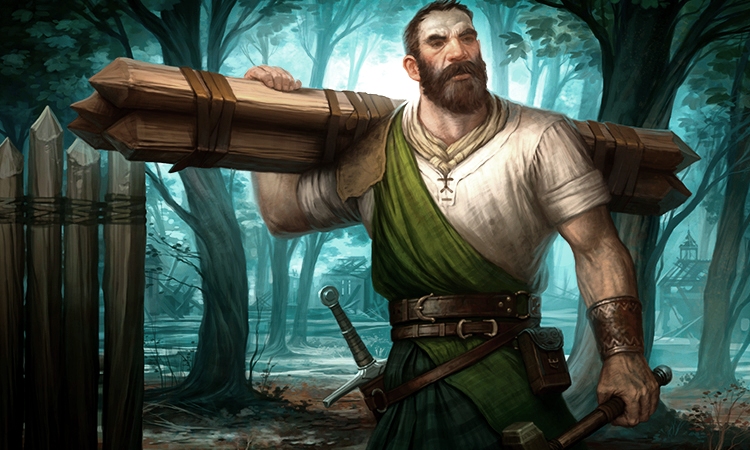Difference between revisions of "Barter Economy"
Tao alexis (talk | contribs) |
Tao alexis (talk | contribs) |
||
| Line 7: | Line 7: | ||
Payment for excess goods that a [[Farmland|farmer]] or [[Pasture|herder]] might produce is managed through a trusted go-between, typically a [[Garner|garner]] or the overseer of a [[Carter Post|carter post]], who "pays" for goods delivered by means of a signed "voucher." A similar voucher is given to the garner when a teamster, or carter, collects these goods for delivery into a [[Village|village]] or [[Town|town]]. | Payment for excess goods that a [[Farmland|farmer]] or [[Pasture|herder]] might produce is managed through a trusted go-between, typically a [[Garner|garner]] or the overseer of a [[Carter Post|carter post]], who "pays" for goods delivered by means of a signed "voucher." A similar voucher is given to the garner when a teamster, or carter, collects these goods for delivery into a [[Village|village]] or [[Town|town]]. | ||
| − | These vouchers have no value of exchange, nor can they be signed to another person. They are personal [[ | + | These vouchers have no value of exchange, nor can they be signed to another person. They are personal [[Promissory Note|promissory notes]] specifically from one person to another, accounting for the lack of available coin or the exchange of same. All persons involved in this practice are personally known by the persons whose role it is to exchange coin for the voucher in question. Thus strangers would need to become personally known in the community, and accepted, before being allowed to take part in this form of bartering. |
== Outlawry == | == Outlawry == | ||
Revision as of 22:55, 10 December 2022
In trade, barter is an agreement to exchange goods in a transaction without the need of coins as a medium. It occurs most commonly within isolated rural communities, where the use of money would be impractical since no shop, store or market is within a practical distance for travel. Because money exists within the culture, and because money can filter into the hands of rural communities, the value of coins is fully understood and utilised to a very small degree — but principle trade in the form of needful items, things that a neighbour could conceivably supply, comes about as arrangements between individuals, viewed as favours done.
A barter economy evaporates for the most part when making a trade within a hamlet, where coin has a presence.
Vouchers
Payment for excess goods that a farmer or herder might produce is managed through a trusted go-between, typically a garner or the overseer of a carter post, who "pays" for goods delivered by means of a signed "voucher." A similar voucher is given to the garner when a teamster, or carter, collects these goods for delivery into a village or town.
These vouchers have no value of exchange, nor can they be signed to another person. They are personal promissory notes specifically from one person to another, accounting for the lack of available coin or the exchange of same. All persons involved in this practice are personally known by the persons whose role it is to exchange coin for the voucher in question. Thus strangers would need to become personally known in the community, and accepted, before being allowed to take part in this form of bartering.
Outlawry
The lack of coin in outlying areas helps preserve these peoples against bandits and plunder. Since no easy wealth can be stolen, frank exchanges can be made between rural folk and outlaws, with the latter supplying information and occasional goods in lieu of food, ordinary supplies and temporary shelter. Thus the independent, isolated farmer is a willing supporter of the outlaw's actions, since both gain from the relationship. Naturally, this arrangement is known and loathed in more civilised circles, but given the disregard given to abject farmers, little is done about it.
See also,
Bartering (sage ability)
Coin (symbol)
The Adventure
Type-7 hex
